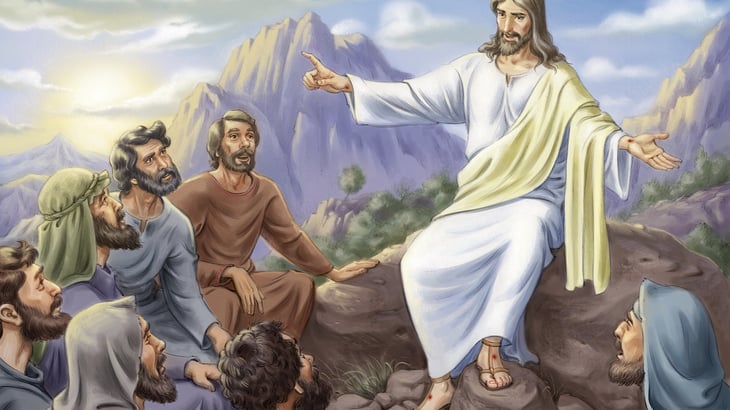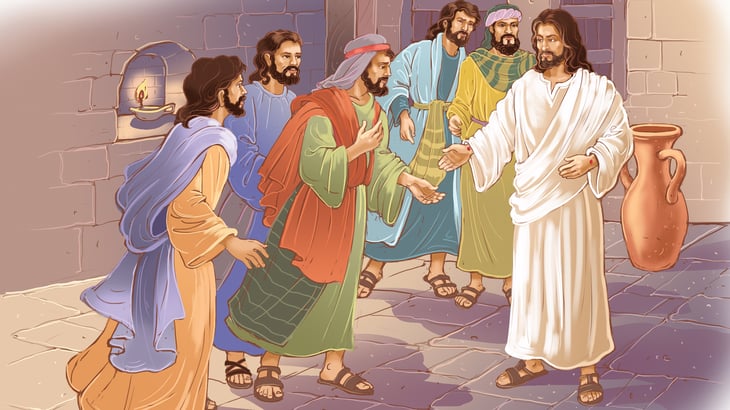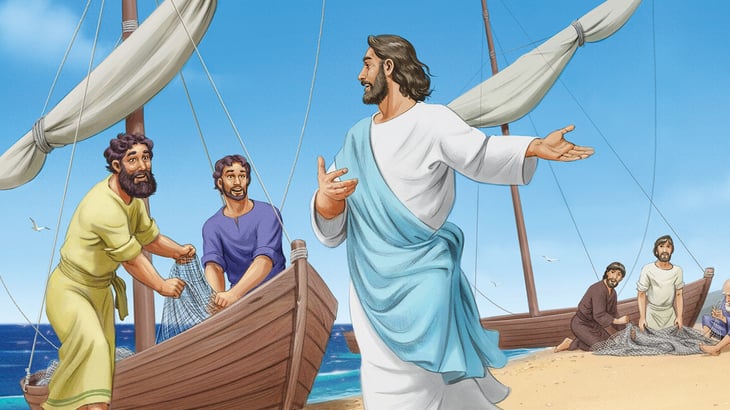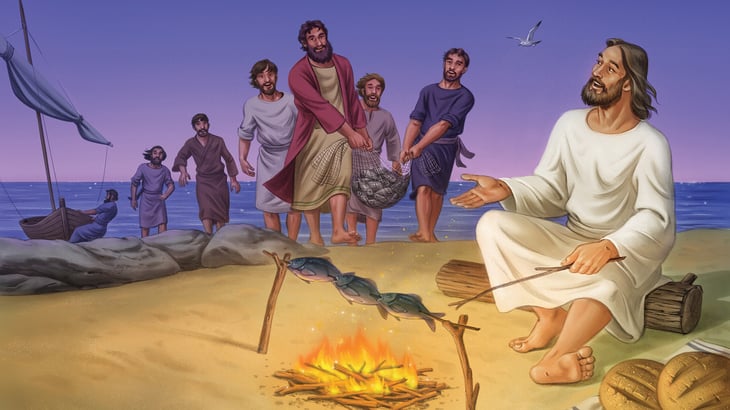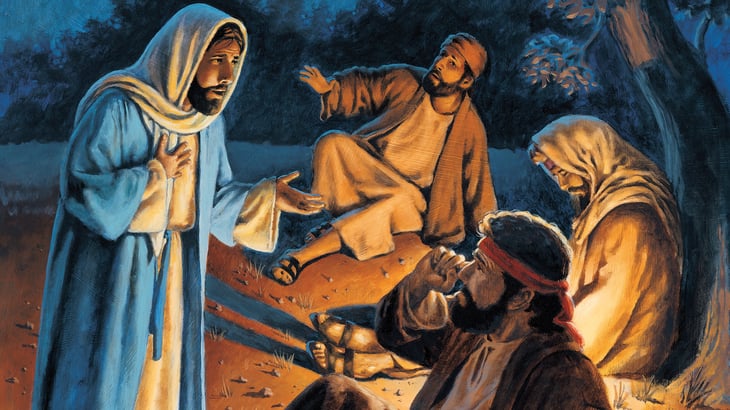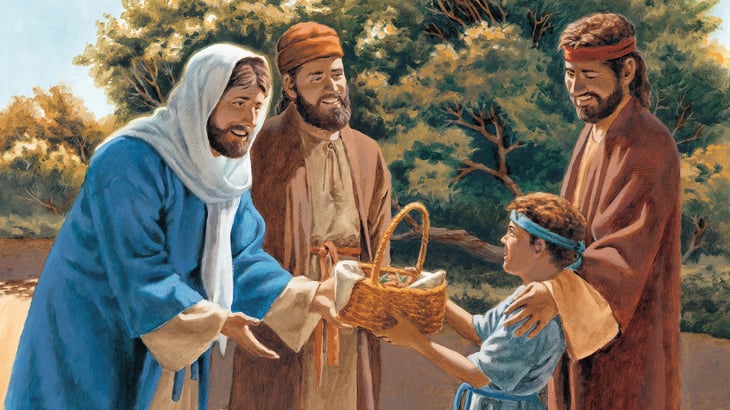Recent Posts by Phil Rigdon
Teaching Jesus in the Old Testament: Exodus 12
The importance of the blood on the doorpost and lintel likely “passed over” the Israelites the night before the Lord freed them from centuries of slavery under Pharaoh. Being of desperate mind, we can guess they regarded the act as nothing more than a divine hoop through which to jump to reach liberty and safety. Yes, God did intend the physical, present liberation of His chosen people. Yet in doing so, He inaugurated a process that would culminate at the death of the Lamb and be effectual at every baptism. Thanks to the work of the Holy Spirit, we connect the doorpost to the cross, and both to the baptismal font. The themes of provision, sacrifice, liberty, and restoration tie all three together.
Teaching Jesus in the Old Testament: Genesis 22
Jesus in the Old Testament?
This month begins a new series of materials for teaching Sunday School. Christians often view the Old Testament as intimidating, irrelevant, evidence of God’s judgment and wrath—a long, boring history of a people long gone. Far from this, the Old Testament prepares us for the New Testament or, more precisely, Genesis through Malachi points us to Jesus Christ.
Teaching the Twelve Apostles: James the Lesser
In the final blog regarding Jesus’ twelve apostles, we finish with James the son of Alphaeus. Scholars often refer to this student of Jesus as “the Lesser,” in relation to James, one of Christ’s inner circle along with Peter and John. Although James the son of Alphaeus enjoys a smaller role in the recorded ministry of Christ, we take care not to minimize his contribution. Notably, Jesus gave him power to heal diseases and cast out demons, and he was present for the feeding of the five thousand, the Great Commission, the ascension, the selection of Matthias to replace Judas, and early outreach ministry as recorded in the Book of Acts. I will present lessons in relation to James and a suggestion for teaching in the Sunday School classroom.
Teaching the Twelve Apostles: Simon the Zealot
The Gospels reveal little regarding Simon the Zealot. It is important to distinguish Simon the Zealot from Simon Peter. As “Simon” was a common name in Jesus’ context, it is not surprising that the Twelve included more than one. Regarding this Simon’s name, “Zealot,” there are possibilities. Either “Zealot” is about the apostle’s passionate faith, or his membership in a New Testament group called the “Zealots,” or both.
Given that details of Simon are so spare, I will address a couple of issues related to Simon’s zeal.
Teaching the Twelve Apostles: Thaddaeus
Compared to others like Peter or Judas, we read little of this apostle. Therefore, this month I’ll present Thaddaeus related to his context. There is much we can learn from the events that took place where Thaddaeus was present.
Teaching the Twelve Apostles: Bartholomew
There is relatively little we know for certain regarding Bartholomew, other than his inclusion with the list of the twelve disciples. His name is the combination of two Hebrew words, “bar(son)” and “Talmai.” As it was common for sons to carry their father’s name, it's likely his father’s name was Talmai. “Bar” is part of other Biblical names. Examples include, Barabbas (son of the father), Barnabas (son of encouragement) and Bartimaeus (son of Timaeus).
There is some thought that Bartholomew is also Nathanael, who is mentioned in the Gospel of John. This is good reason to assume this. In the first three Gospels, what are called the synoptic Gospels, Bartholomew is listed closely with Philip. As you will read below, Philip finds Nathanael upon encountering Jesus. These common connections to Philip suggest Bartholomew and Nathanael are the same person. We will proceed under this assumption.
Teaching the Twelve Apostles: Andrew
While it is true that Peter, his brother, plays a larger role in the Gospels, Andrew is involved in several important events. Andrew and Peter put us in mind of Moses and Aaron. Moses, like Peter, holds the limelight, yet Aaron is indispensable. We may have to dig a bit deeper into God’s Word than normal, but we will find a great deal to learn and teach from this fisherman from Galilee.
Teaching the Twelve Apostles: James
Although we read more about John, his brother, and Peter, James is significant in that he was part of our Lord’s inner circle. As we will see below, James presents excellent opportunities to teach regarding miracles, jealousy among Christians, and God’s choices. This month we learn of James, called to be a fisher of men and finally martyred for his faith by Herod’s sword.
Teaching the Twelve Apostles: John
This month we spend time with John, my personal favorite. On first inspection, John is the ideal apostle. Along with Peter and James, he formed Jesus’ inner circle, who were present for some of the most important events in Jesus’ ministry. He also wrote a large portion of the New Testament and served as Mary’s adoptive son per Jesus’ mandate at the cross. Nevertheless, John had his faults, including a wrathful heart and conceit.
Teaching the Twelve Apostles: Philip
This month, we look at one of the lesser-known apostles, Philip. I have an affinity with this apostle as we share the same name. One of my personal geeky interests is philology, the study of languages. The name Philip is derived from Greek and means “one who loves horses.” the first half of the name, Phil, is related to Philadelphia and philanthropy. The second half, ip, is related to hippopotamus, which means “river horse.” Interesting? Let’s study Philip!




